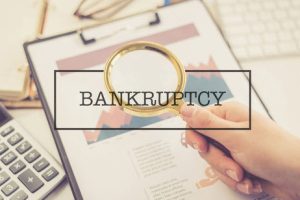What’s The Difference Between Chapter 7 And Chapter 13 In Illinois?

The coronavirus pandemic seems to be dragging on indefinitely. Nevertheless, the relief packages the pandemic spawned are expiring. Many families counted on mortgage forbearances, additional unemployment benefits, and other such programs to make ends meet. Now, this vital assistance is drying up. Making matters worse, banks will probably not be very patient with families who are behind on payments, and in some cases, the delinquent amounts could be substantial.
As a result, especially as 2021 becomes 2022, many families who never considered such a move before may reach out to a Chicago bankruptcy lawyer about their legal options. Most families have two bankruptcy options. If a family farm or small business is involved, there may be additional alternatives. As outlined below, the two consumer bankruptcy options are essentially debt discharge and debt repayment.
Chapter 7 Discharge
If credit cards, medical bills, and other unsecured debts are the problem, Chapter 7 might be the solution. In as little as nine months, this form of consumer bankruptcy eliminates most such debts. So, instead of paying hundreds of dollars a month to credit card companies and rich doctors, families can hold onto more of the money they earn.
Significantly, the Automatic Stay applies in both Chapter 7 and Chapter 13 cases. Section 362 of the Bankruptcy Code prohibits creditor adverse actions such as:
- Eviction,
- Wage garnishment,
- Foreclosure,
- Creditor harassment, and
- Repossession.
The Automatic Stay is, well, automatic. There is no need to prove creditor or lender fraud, negligence, or anything else.
Furthermore, once you file bankruptcy, the law exempts most of your assets from creditor seizure. Exempt assets include:
- House,
- Motor vehicle,
- Retirement account,
- Personal property, and
- Government benefits.
In some cases, current wages are exempt as well, so families may continue to pay bills on an uninterrupted basis.
Procedurally, a Chapter 7 is rather straightforward. About six weeks after debtors file a petition and schedules, the trustee (person who oversees the bankruptcy for the judge) reviews the paperwork for possible fraud. Assuming there are none, and there rarely are, the trustee usually recommends immediate unsecured debt discharge.
“Discharge” means the judge eliminates the legal obligation to repay a debt. The collateral consequences, if any, remain. For example, if the judge discharges unpaid medical bills, the doctor may still refuse to provide further services.
Chapter 13 Repayment
The aforementioned asset protections also apply in Chapter 13. The Automatic Stay applies as well. But in Chapter 13, the Automatic Stay normally lasts five years. This protected repayment period gives families time to catch up on delinquent mortgage payments and other past-due secured debt payments.
At the meeting with the trustee, the trustee and the debtor’s Chicago bankruptcy lawyer come up with a monthly debt consolidation payment. As long as this payment amount meets minimum legal requirements, the judge almost always approves the repayment plan, usually without requiring a hearing.
At the end of the protected repayment period, the debtor has a zero past-due balance on all secured debts. That’s the very essence of the fresh financial start that the Bankruptcy Code guarantees.
Reach Out to Hard-Working Cook County Lawyers
Most families have two options in bankruptcy. For a free consultation with an experienced bankruptcy attorney in Chicago, contact the Bentz Holguin Law Firm, LLC. Convenient payment plans are available.
Resource:
cnbc.com/2021/08/06/unemployment-benefits-stimulus-checks-pandemic-era-aid-is-ending-.html


